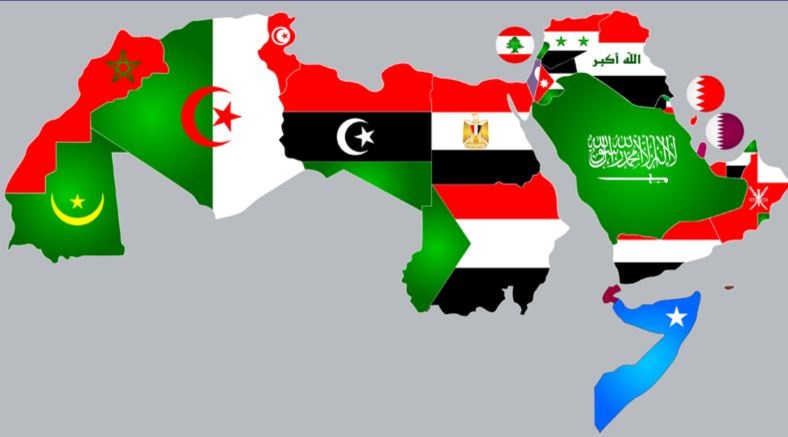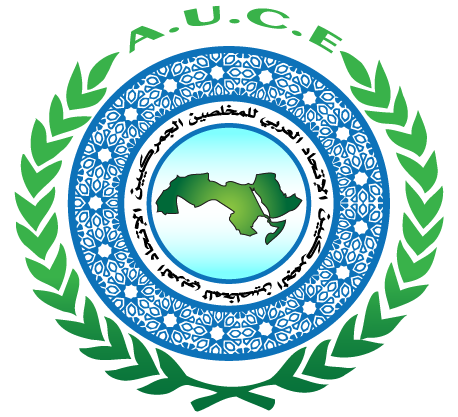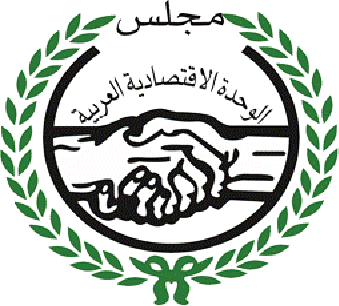INTRA-ARAB TRADE HURDLES AND SOLUTIONS

ARAB INTRA-TRADE
On
contemplating the reality of the Arab intra-trade, it is revealed thatit does
not go beyond 10% ofthe total Arab foreign trade. This would raise a logical
question about the reasons forweakness of Arab intra-trade, despite the fact
that our great Arab countries enjoy natural resources, financial and huge human
resources. Not to mention, the geographical unity and the strategic location
that links East and West.
All
these elements can make the Arab world a great economic power that plays an
important role in the global economy.
To answer the question of why Arab trade is weak?
We will brieflydiscuss some of the obstacles and problems that stand in the way
of the growth of intra-Arab trade. Let’s start
OBSTACLES & ISSUES HOLDING BACK
ARAB INTRA-TRADE
First: Non-Tariff Restrictions: These restrictions represent a real obstacle outdoing other constraints.
Following are among these constraints:
·
Administrative
restrictions:
Administrative
Restrictions refer to those restrictionsrelated to the re-evaluation of customs
and the number of unnecessary documents required with the goods. Elimination of
such restrictions requires adopting the value of the invoice in the valuation process.
Such can be done through the application of the rules contained in the WTO in
this regard. Administrative restrictions also include transit time.
·
Technical
limitations:
Technical limitationsrefer to those constraints related to the specifications wherein
multiplicity of specifications among countries for a single productvary.
Moreover, inconsistencies in application and sometimes the length of time
required to issue and ratify the certificate are also considered an example of
these technical constraints. Not to mention, some Arab countries also change
the specifications without prior notice.
It is worth mentioning too that the agreement concerned withfacilitation
and development of Arab Trade among Arab countries and its Executive Program
called for immediate elimination of all non-tariff restrictions since these
restrictions have a direct impact on obstructing inter-Arab trade.
Second: Duties
& Fees with similar effect of the Customs tariffs:
Imposition
of duties and taxes with similar effect of the customs tariff on Arab goods imported
from the Arab countries will lead to disruption of the effect of the customs
reduction. Moreover, additional taxes and fees are considered among the main
impediments that hold back the optimal implementation of the Grand Arab Free
Trade Area, such as customs duties, fees for document attestation, charges of
statistics and customs services, in addition to the charges and fees of public
interest such as veterinary fees and road traffic charges.All such charge and
feeshave adverse effect on the value of the goods.
Third: Regulations
of Origin / Detailed Regulations of Origin:
The
detailed rules of origin of Arab products are considered one of the main
pillars of the Grand Arab Free Trade Area.Through adopting such agreement, it
is possible to prevent infiltration of foreign products into Arab countries
benefiting from the advantages offered by the region to Arab products.Furthermore,it
is the means by which productive integration can be achieved among Arab
countries – taking benefit from theregulations of Cumulative origin.
It is worth mentioning that the Arab General Regulations of Origin, which are
concerned with the purposes of implementing the agreement on facilitating and
Developing Trade between Arab Countries has set 40%as an added-value for Arab
produced goods.
Slowdown and lack of agreement on the regulations of origin will have negative
repercussions. The agreement on the detailed regulations of origin is considered
trade policies practiced by states in the context of encouraging
inter-investments and employing them in the service of the required economic
integration.
Fourth: Land
Transportation:
Land
Transportation is one of the most important obstacles standing against
achievement of intra-Arab trade, since we do not yet have roads or land
transport networks linking the countries of Morroco, Tunisia and Algeria with
the Eastern and GCC countries. In short, absenceof regular transport between
Morocco and the Levant at competitive prices makes trade between the two wings
of the Arab region is so meagre.In addition, there are complications on the
borders between Arab countries and the length of time.Therefore, land transportation
is viewed as one of the most obstacles that hold back liberalization of
intra-Arab trade. Accordingly, we must reformulate the Land Transport Agreement
(Transit) between Arab countries or work to develop such agreement in a manner
that would serve the public interest.
Fifth: Lack of
Information Required for Inter-Arab Trade
The
private sector suffers from lack of official information pertinent to
commercial facilities, mainly customs services, transport, transit, banking,
insurance and consulting services. There is also lack of information regarding
Arab markets, commodities, patterns of consumption, specifications, standards,
and quality.
Sixth:
Difficulties of Mobility of Indivduals& Capital among Arab Countries
Finally, the real solution of all such impediments that hold back inter-Arab trade begins in the first place with a genuine political will towards achieving Arab economic integration and denouncing all differences between Arab countries. Hence,we could seriously search for the real return of Arab capital migrating out of our Arab region, where investment is the true link to the economic integration cycles and simplification of trade movement from production areas to the consumer areas, development of infrastructure, and full coordination of all new investments up to the stage of integration rather than competitiveness. Standardization of specifications and working hard to achieve customs cooperation is the main link in implementation and fulfillment of economic integration requirements.
Taha
Mohammed Qulaisi
Vice Chairman,AUCE



